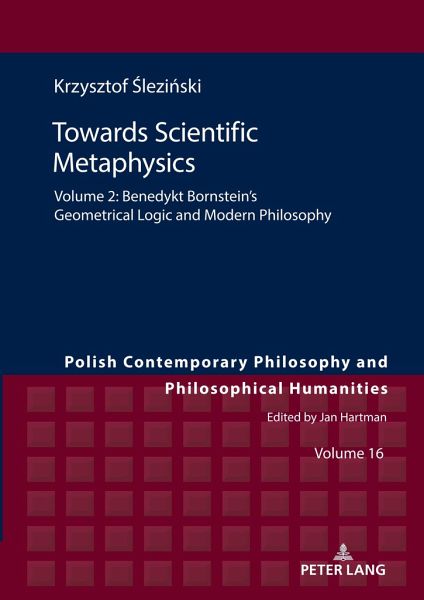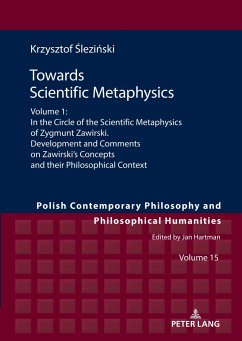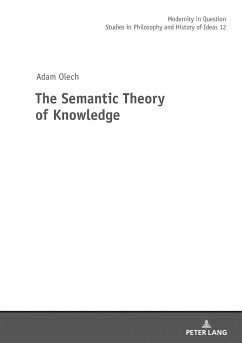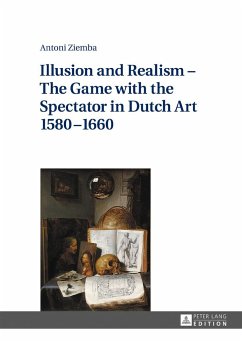
Towards Scientific Metaphysics, Volume 2
Benedykt Bornstein's Geometrical Logic and Modern Philosophy
Herausgegeben: Hartman, Jan;Mitarbeit: Dziewit, Jakub
Versandkostenfrei!
Versandfertig in 6-10 Tagen
72,65 €
inkl. MwSt.

PAYBACK Punkte
0 °P sammeln!
In the first half of the 20th century, many Polish philosophers focused on defining scientific concepts that could lead to the development of a philosophical synthesis of reality. Benedykt Bornstein elaborated an algebraic logic and developed novum organum philosophiae in the form of geometrical logic, a mathematical system of universal science. It can also be stated that Bornstein was unquestionably the forerunner of philosophers who started research into spatial logic in the second half of the 20th century.The aim of this study on Bornstein's Geometrical Logic is to draw readers' attention n...
In the first half of the 20th century, many Polish philosophers focused on defining scientific concepts that could lead to the development of a philosophical synthesis of reality. Benedykt Bornstein elaborated an algebraic logic and developed novum organum philosophiae in the form of geometrical logic, a mathematical system of universal science. It can also be stated that Bornstein was unquestionably the forerunner of philosophers who started research into spatial logic in the second half of the 20th century.
The aim of this study on Bornstein's Geometrical Logic is to draw readers' attention not only to the algebraic and geometrical tools used in philosophical research, but also to demonstrate its importance for contemporary philosophical discussions which use mathematical tools in topology and category theory.
The aim of this study on Bornstein's Geometrical Logic is to draw readers' attention not only to the algebraic and geometrical tools used in philosophical research, but also to demonstrate its importance for contemporary philosophical discussions which use mathematical tools in topology and category theory.














